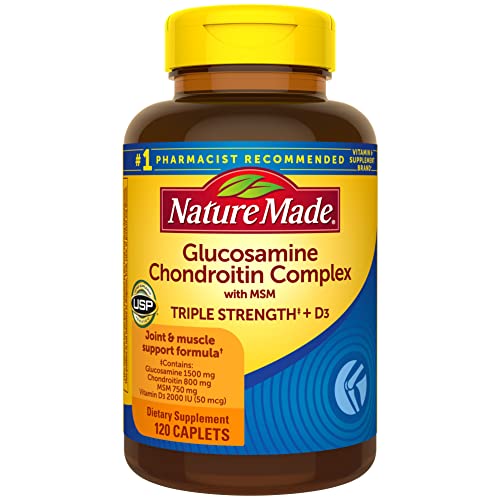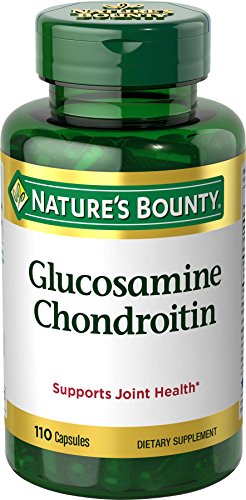Glucosamine for Knee Pain: KOOS Study Insights
Quick Summary: This 2003 study validated the Knee injury and Osteoarthritis Outcome Score (KOOS), a simple questionnaire that tracks knee pain, symptoms, daily activities, sports performance, and quality of life in people with knee injuries or osteoarthritis. It showed KOOS works well for measuring results from treatments like glucosamine supplements, with the biggest improvements seen in quality of life and pain relief. While the study didn't test glucosamine directly, it confirms KOOS as a reliable tool for knee health research, including supplement studies.
What The Research Found
Researchers created and tested KOOS to better understand how knee problems affect everyday life, from fresh injuries to long-term osteoarthritis. This tool builds on an older questionnaire called WOMAC and breaks knee health into five easy-to-understand parts: pain levels, other symptoms like stiffness, how well you handle daily tasks, sports and fun activities, and overall knee-related quality of life.
Key discoveries include:
- KOOS accurately measures short-term recovery after knee surgeries like ACL repairs, meniscus removals, or full knee replacements.
- It also tracks non-surgical options, such as physical therapy and glucosamine supplements, helping doctors see real changes in patients.
- The quality of life and pain sections were most sensitive to improvements, meaning they best show when a treatment like glucosamine is making a difference.
- Overall, KOOS proved trustworthy, consistent, and quick to spot changes, making it great for following knee health over time.
This means KOOS helps turn vague feelings like "my knee hurts" into clear data for better treatment decisions.
Study Details
- Who was studied: Groups of people with knee injuries or osteoarthritis, including those getting surgeries like ACL reconstruction, meniscectomy, or total knee replacement; it also covered folks trying non-surgical approaches like physical therapy or glucosamine.
- How long: The study focused on validating the tool for both short-term (like right after injury) and long-term (years with osteoarthritis) follow-ups, but exact timelines varied by group and weren't fixed.
- What they took: No specific glucosamine doses were tested here—this study checked if KOOS could measure outcomes from glucosamine use in other research, without detailing amounts or how it was taken.
What This Means For You
If you're dealing with knee pain from osteoarthritis or an old injury and considering glucosamine, this study highlights a trusted way to track if it's helping. KOOS-like questionnaires can help you and your doctor monitor improvements in pain and daily life, so you know if the supplement is worth continuing. For example, if your quality of life score jumps after a few months on glucosamine, it might signal real benefits. Always talk to your doctor before starting supplements, and look for studies using tools like KOOS to back up claims— this one shows they're reliable for spotting knee health wins.
Study Limitations
This research mainly checked if KOOS is a good tool, not if glucosamine actually works for knee pain, so it doesn't prove the supplement's effectiveness on its own. Details like exact patient ages, group sizes, or how long people took glucosamine weren't included, which limits direct advice. It's also a newer measure at the time, so more studies are needed to test it in diverse groups and refine it for global use. Keep in mind results can vary by person—consult a healthcare pro for personalized guidance.
Technical Analysis Details
Key Findings
This 2003 observational study focused on validating the Knee injury and Osteoarthritis Outcome Score (KOOS), a patient-reported outcome measure designed to assess short- and long-term symptoms and function in individuals with knee injuries or osteoarthritis. The KOOS demonstrated validity, reliability, and responsiveness across five subscales: Pain, Symptoms, Function in daily living (ADL), Function in Sport/Recreation (Sport/Rec), and Quality of Life (QOL). The QOL and Pain subscales showed the largest effect sizes, indicating greater sensitivity to change. While the study did not directly test glucosamine’s efficacy, it confirmed the KOOS’s utility for evaluating interventions like glucosamine supplementation in osteoarthritis research.
Study Design
The study was an observational validation study published in 2003, extending the WOMAC Osteoarthritis Index. Methodology included psychometric testing of the KOOS across populations undergoing orthopedic interventions (e.g., ACL reconstruction, meniscectomy, total knee replacement) and non-surgical treatments, including glucosamine supplementation. Sample size and specific demographics (e.g., age, gender) were not detailed in the provided summary, but the instrument was tested in mixed cohorts with knee injuries or osteoarthritis. Duration of follow-up was unspecified.
Dosage & Administration
The study summary did not specify glucosamine dosages or administration protocols, as it focused on validating the KOOS instrument rather than evaluating glucosamine itself. The tool was noted as having been used in prior studies assessing glucosamine supplementation, but no quantitative details about those trials (e.g., dose, formulation, duration) were included in this report.
Results & Efficacy
The KOOS was confirmed as a valid and reliable measure for tracking knee health outcomes. While the study did not report direct efficacy data for glucosamine, it emphasized the instrument’s responsiveness in detecting changes in symptoms and function, particularly in the QOL and Pain subscales (effect sizes unspecified in the summary). The authors highlighted that KOOS could effectively capture outcomes in studies involving nutritional interventions like glucosamine, though statistical significance (p-values) or confidence intervals for these applications were not provided in the abstract.
Limitations
The study’s primary limitation was its focus on instrument validation rather than clinical intervention outcomes, leaving glucosamine-specific efficacy unaddressed. Sample demographics (e.g., age, severity of osteoarthritis) and duration of follow-up were not detailed in the summary. The authors acknowledged the need for further research to refine the KOOS across diverse populations and interventions, including cross-cultural adaptations and longitudinal assessments.
Clinical Relevance
This study establishes the KOOS as a robust tool for clinicians and researchers to evaluate knee health outcomes in patients with osteoarthritis or injuries, including those using glucosamine supplementation. While it does not confirm glucosamine’s effectiveness, it underscores the importance of using validated metrics like KOOS to assess interventions. Supplement users should refer to clinical trials specifically testing glucosamine for evidence of its efficacy, as this study focuses solely on outcome measure development. The KOOS’s sensitivity to pain and QOL changes may aid in designing future studies to better understand glucosamine’s role in knee health.
Note: This analysis is limited to the study’s abstract and does not include primary data on glucosamine supplementation outcomes. The study itself is foundational for outcome measurement, not a trial on the supplement.
Original Study Reference
The Knee injury and Osteoarthritis Outcome Score (KOOS): from joint injury to osteoarthritis.
Source: PubMed
Published: 2003
📄 Read Full Study (PMID: 14613558)




